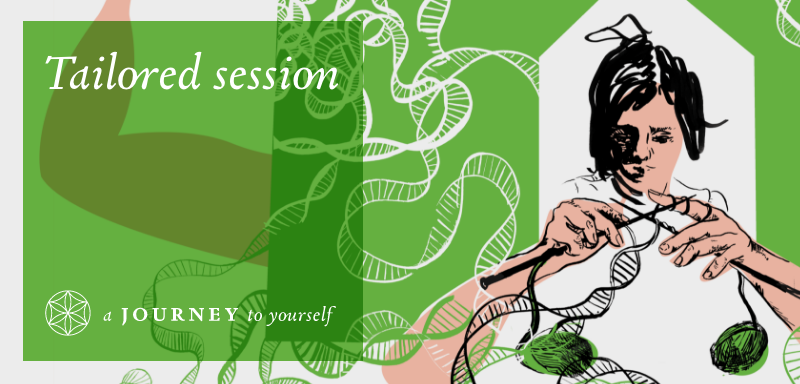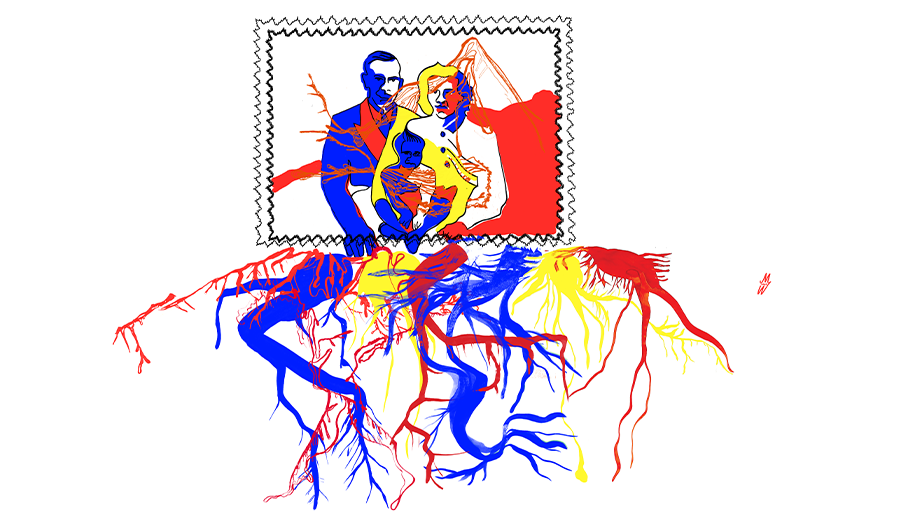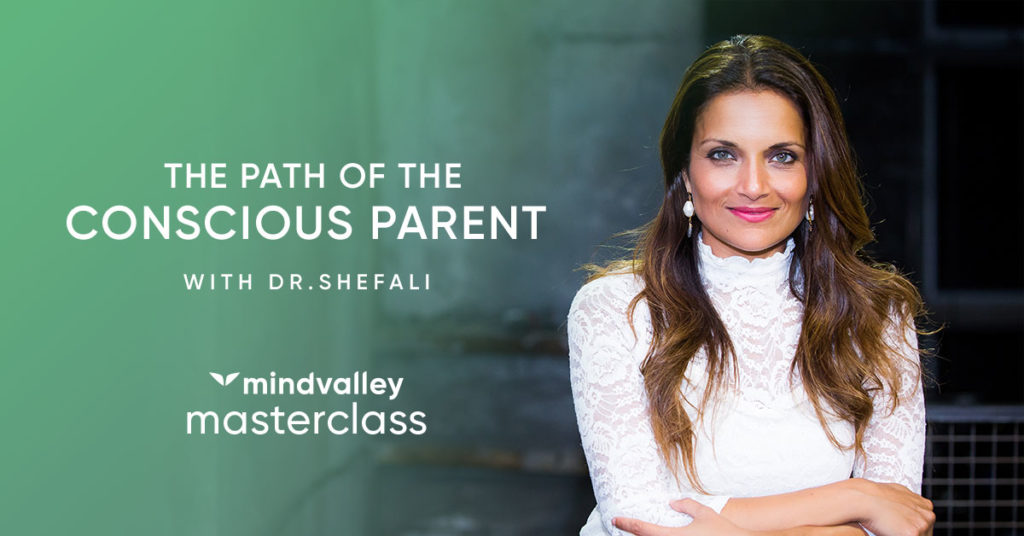The most common behaviors of a parent, both mother, and father, are recorded in the child’s neural pathways as relationship clues. On their basis, the child begins to learn what to expect from other people in close relationships. Thanks to them, they will learn how other people react to their needs. And also decides whether to hide them or not. The child will understand whether other people will help them and make them feel better, or disappoint them, or even hurt them. They will influence all their relationships in adulthood.
In this article, you will learn how relationship problems with your parents or other people manifest in your body.
However, since these are schemas and knowledge hidden deep in your subconscious mind, you do not always have access to them. It’s hard for you to identify your own neural pathways and understand them. Consequently, you cannot understand why you behave the way you do in relationships with other people.
However, it is worth knowing that your psyche is connected with your body due to the vital energy flowing through the network of meridians. This energy allows all human physical, mental and spiritual aspects to function. It is used for the functioning of the organ and the psychological sphere associated with it. It is also a carrier of information, therefore your body stores information about your relationships with parents and other people, and all dysfunctions in these relationships are manifested in it through various types of ailments and diseases.
Therefore, learning the key to interpreting these ailments and carefully observing your body, especially the various types of symptoms or diseases that appear in your body, will help you discover how you really function in relationships. And also what should be changed or improved in them. Of course, there is no one-size-fits-all diagnosis. Remember that this must be your individual, intuitive interpretation based on certain dependencies on which Eastern medicine has been based for centuries.
Life energy is bipolar Yin (female) and Yang (male). The lower part of the human body is Yin, the upper part is Yang. The right side is Yin and the left side is Yang. The front of the body is Yin and the back is Yang. The inside of the body is Yin and the surface is Yang. The upper limb is Yin, the lower is Yang, etc. Each of these energies symbolizes your relationship with your mother, Yin, or your father, Yang, in the first place. On the lower levels, it shows relationships with other people or aspects related to the symbolism of the mother or father.
So when you have symptoms in your body that only occur on one side of your body, you should look at what is happening in your life at a given moment (or in the past, the deeper the symptom, the further past) in that area. You should start higher to lower. You interpret the inside of the body and its surface in a similar way, etc.
Relationships with parents and body.
| Right Side – Yin | Left Side – Yang |
| Level 1: mother, wife, daughter, and sister | Level 1: father, husband, son, and brother |
| Level 2: woman, femininity, the structure of things or oneself, feeling | Level 2: the essence of things or yourself |
| Level 3: family, workplace (symbolic mother), society, church | Level 3: individualism (father’s symbol), authority, police |

Relationships with parents and body.
Every part of your body has to do with some aspect of your life, with your relationship with yourself and other people. Therefore, by analyzing the ailments in individual parts of the body in accordance with the above scheme, you can understand what problem you have in relationships with others. Then fix it and your physical ailment should go away. For example, a pain in the left hip can symbolize a sense of betrayal by your father. The depth of this pain will tell you whether this betrayal is about present experience or past experience, etc.
Relationships with parents and body.
| Body part | Interpretation of ailments, trauma, burns, cuts, pain, sprains |
| Skeleton and bones | Afflictions relate to some fundamental principles of life. These are life beliefs, attitude to life, collective ideas: history, culture, customs, religion, racism, ethics, a sense of honor and justice, perversions, or the darkest fears. |
| Lower limbs | Society and relationships. Tense relations with the environment or with a specific person. |
| Hips | The articular axis of your world of relationships. It’s a betrayal or abandonment, whether it’s because of you or the other party. |
| Knees | Problems with bending, accepting some experience in your relationship with the outside or inside world, your relationships with other people, or with yourself. It is acceptance, surrender, capitulation, and the ability to let go, surrender or even withdraw. |
| Ankle | Difficulties in relationships, lack of stability and flexibility. Problems making decisions about something important in life. Your attitude and your view of others and yourself. It symbolizes your ability to change your attitude or rules, and your ability to get involved. |
| Foot | Tensions in your relationship with the world. Lack of credibility, stability, and security related to your habitual attitude or belief. Your position, the official role you play. Your worldview and ideals. Freedom. |
| Toes | A feedback tool, the so-called feedback. Cuts, bruises, burns, bruises refer to the process of expressing and/or removing tension in relationships. Finger – relational support, what you are. Feeling the tension in your relationship to the world on the material plane (inner side) or the emotional plane (outer side). Second toe – you cannot cope with any of your material or professional problems. Third toe – difficulty in balancing relationships, fear of moving forward. Fourth toe – details of your relationship with the environment, difficult relationship situation regarding what you think is right or wrong. A relationship that does not suit you in terms of conditions and quality. Little toe – the injuries associated with it relate to old memories, old relationship patterns. References to the world or another person that no longer suit you. |
| Thigh | The unconscious picture of relationships. Unconscious wounds that try to surface but that you reject. And also experiences accepted by the consciousness that has not yet been accepted by the subconscious. Something you have received with your mind but not with your soul. |
| Calf, tibia, and fibula | Integrating the accepted memory with your worldview, concept of life, or even life ideals. Difficulty accepting changes. Problems with changing your opinion or your current attitude to the world. |
| Upper limbs | The ability to influence others, judge, or decide about the fate of others. The ability to make choices. Tension is related to the will to influence the outside or inside world. Difficulty interacting with things or people. Problem with implementing ideas, projects, concepts that you care about. |
| Shoulders | Approach to the ability to act and the will to control the environment. Prejudices and intentions. The desire to act. Attitude to action. Difficulty operating, especially in terms of resources. No external support, external obstacles. |
| Elbow | Problems letting go of too rigid will to act. Difficulty accepting an experience or situation. Your or other people’s way of acting does not suit you, conflicts with your habits, or beliefs. |
| Wrist | The flexibility of opinions will influence things and people. Lack of security or flexibility in actions, intentions, or opinions. Rigidity in terms of inability to influence the environment. |
| Hand | The final stage of the activity implementation, it’s finishing and precision. Power and authority. Relation to an activity in the outside world – control, power, possession, or greed. Desire to dominate people or things. Problems with letting go, restraining the will to possess, control, and power over the environment. |
| Fingers | A feedback tool, the so-called feedback. Thumb – External security, defense against the environment. There is a need for internal and external unity. Symbol of sadness or failure. Need to take shelter and protection from the external, imaginary, or real attack. Index finger – leadership, demand, accusation, and threat. You need to expel something, not keep it within you. Getting rid of an experience. Too strong a tendency to conduct others or abuse power. Middle finger – a symbol of internal structuring, life force, and sexuality, as well as life satisfaction and influence on the environment. Dissatisfaction with the way things are in your life or with the way you deal with them. The ring finger – the finger of coherence and integrity of us and the world. Problems with connection, integrating things around you. Little finger – a finger of finesse and subtlety as well as superficiality and pretentiousness. The need to externalize either emotional tension or a tendency to superficiality and subjectivity. |
| Shoulder (biceps and arm bone) | Unconscious attitude to action. Projection of the phase of transition from the unconscious to the awareness of your desires and will to act. Operation problems. Flows of memories or deep cuts to the surface. Personal failure, the inability to achieve something on a professional or family plan, fear of action or its consequences. And also experiences accepted by the consciousness that has not yet been accepted by the subconscious. Something you have received with your mind but not with your soul. |
| Forearm, ulna, radius | The transition from the will to realization. Difficulties with finding new means of action, different from those to whom we are accustomed. |
| Neck | A bridge between what is conceptual (brain, ideas, concepts, desires, aspirations, intentions). Difficulty or inability to implement your ideas, concepts, aspirations, and intentions. You are facing something you cannot or fail to do. |
| Digestive system | Difficulty swallowing, digesting what is happening in your life. |
| Stomach | Difficulties with the material realm of life. Financial, professional, school, or official problems. Tendency to over-dwell on matters and events. |
| Spleen and pancreas | Tendency to go through life too wisely. Too little enjoyment and joy in life. Too much duty, no slack. Reflection, tendency to live in the past. Diabetes often means an overly authoritarian and unjust father. It can also be a consequence of a strong life shock related to the confrontation with the brutal destruction of the emotional safety zone. Hypoglycemia – a common case of children unwanted by the mother and/or father who were “absent”. |
| Liver | The problem with digesting something. The emotion of anger, reacting with anger and shouting or repressing anger within yourself. Difficulty experiencing your own mental states, emotions, or emotions sent by the environment. |
| Gallbladder | Ailments mean that you cannot cope with your feelings, you get lost in them. You tend to manipulate people or have a vague or even extreme sense of truth and justice. |
| Small intestine | Difficulty assimilating experiences, allowing them to penetrate into us without judging. You tend to judge events and people. |
| Large intestine | Problems mean you hold things up and don’t let them go, you can’t let them go. It’s hard to forget bad experiences. It is also a fear of missing and making a mistake. |
| Respiratory system | You have problems protecting yourself from the outside world. You don’t want to close some wounds in life, you hold a grudge, you can’t forgive or forget something. Coughing, asthma, angina, bronchitis are signs that you are experiencing severe aggression that you cannot cope with. “You are choking in some company”, “you lack air in the family”, etc. It can also be associated with feelings of sadness, melancholy, regret, or loneliness. |
| Skin | Problems in relation to the environment. You feel attacks on yourself from outside. |
| Urinary tracts | Problems with the deepest beliefs on which your life is based. Fear and resistance to change. Fear of destabilization. |
| Kidneys | Difficulty giving up habits, established patterns of thinking or beliefs. Fear of death. Pains are also a reaction to a terrible situation. Difficulty finding a balance between being assertive, aggressive and defensive, and passive, listening, and running away. Holding a grudge. |
| Bladder | A disturbing process of erasing old memories, old views, habits, or thought patterns. Anger and rebellion against such an attitude. As well as concerns about your ancestors in the case of men, fear of parents, especially the father or their representatives (grandparents, teachers). |
| Circulatory system | Problems with the joy of life, love for life. An emotional trauma that has caused you to dislike some parts of yourself. |
| Heart | Difficulty experiencing love and controlling emotions. Resentment, hatred, and anger are often suppressed by sport, competition, or cuts. Love for yourself, other people, and what you do. |
| Venous system | Difficulty with the joy of life, love. No passion or joy. The helplessness that you cannot fulfill your desires and your pursuit of happiness in relation to yourself or other people. The feeling that something outside is holding you back and you have to accept something that prevents you from being happy again. |
| Arterial system | Difficulty or inability to do what you enjoy in life. You cannot or are not capable of it yourself. The fear that holds you back or the feeling of failure, being a victim. No love in life. |
| Brain | Difficulty managing thoughts over life situations. Seeing all things in terms of profitability at the expense of the human dimension. The dominance of the conscious mind, the need to understand everything. The need to be right and to avoid a mistake is seen as a sign of weakness. |
| Spinal cord and nerves | Problems with putting ideas and ideas into practice and with spontaneous reaction. What don’t you want to do that paralyze you? |
| Autonomous nervous system | The problem of the unconscious over controlling external pressures and emotions. |
| Reproductive system | Tensions in relation to the other person – absence, frustration, death, conflict, or the place occupied by each of them. Difficulty experiencing or accepting a balance of male and female energy. Sexually transmitted diseases feeling guilty because of sexual practices that are inconsistent with the standards of the person or those around them. Coldness, pain, and inflammation are difficulties in experiencing the pleasures of life, especially in professional, social, or family activities. |
| Eyes | Problem with seeing something in your life that affects you emotionally. Feeling of injustice. |
| Ears | Difficulty hearing what is happening around you. |
| Mouth | Ailments mean that what someone proposes to us or what you say yourself does not suit you. Or that you do not agree with the upbringing you have received or the experiences you have lived. |
| Nose | Attitude towards intimacy, to accepting intimate information about oneself or another person. What can you not bear? Also resentment, bitterness, a desire for revenge. |
| Throat | Problems with expressing what you feel or think for fear of the consequences. |
Relationships with parents and body.
Source:
Michel Odoul “What Your Aches and Pains Are Telling You: Cries of the Body, Messages from the Soul” („Powiedz mi, co Cię boli, powiem Ci, dlaczego”), Wydawnictwo Co-Libris, Siewierz, 2019.
Thanks to our partnership with Mindvalley, you can now learn conscious parenting from the best experts in the world.
Discover a new model of parenting Oprah called “Revolutionary” and “Life-changing” so you can create the ideal environment for your children to thrive and blossom into their most authentic self with conscious parenting expert, Dr. Shefali Tsabary.


